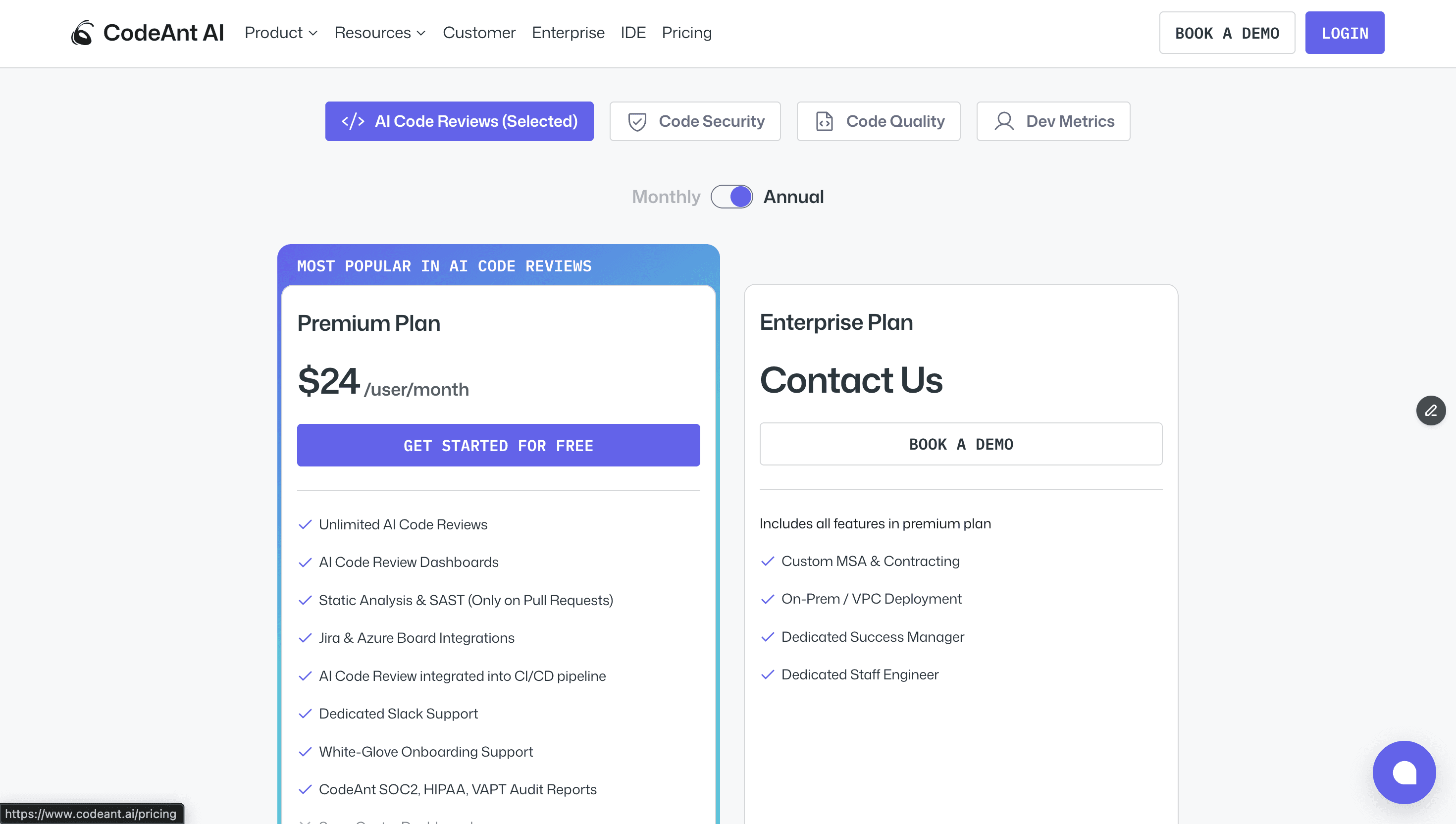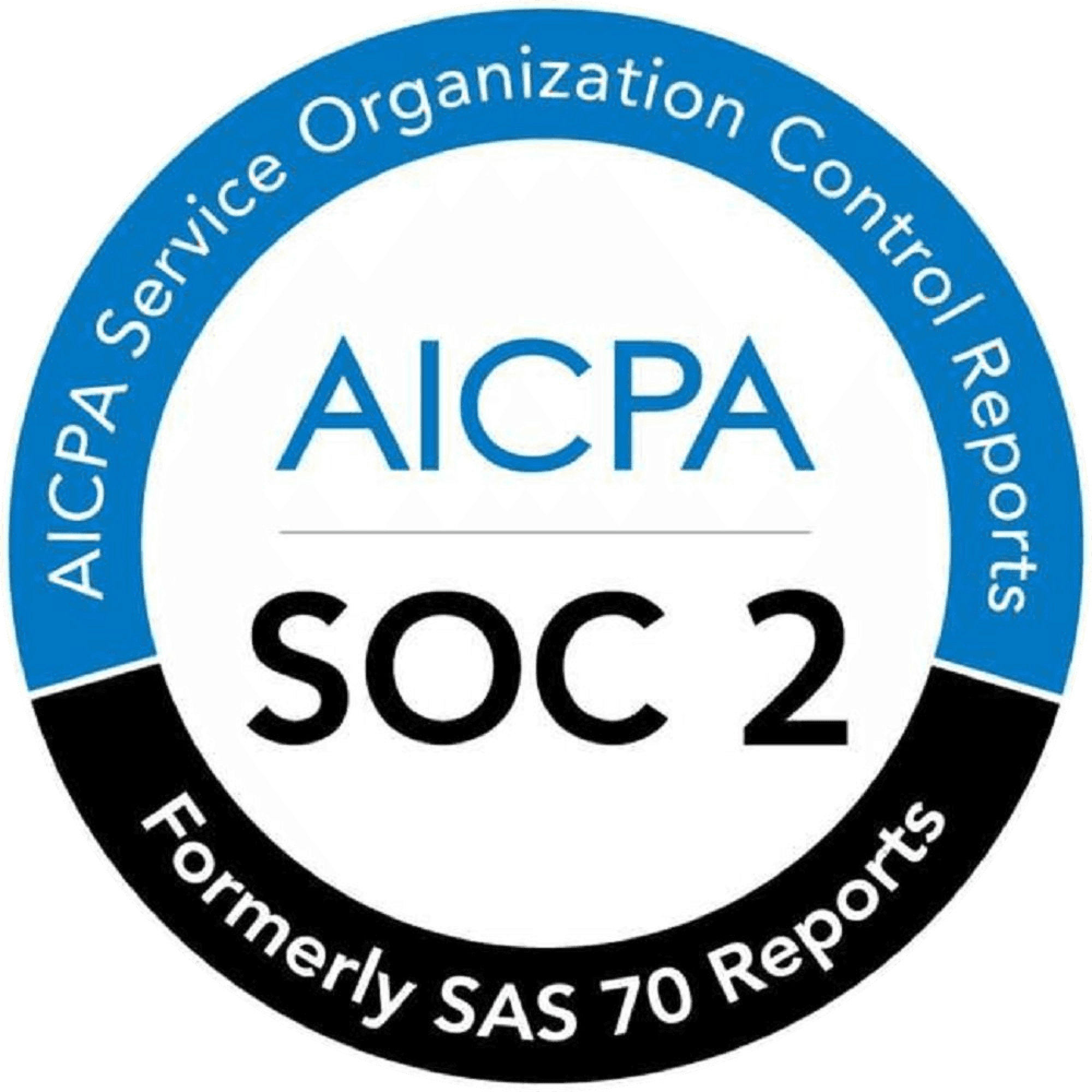AI Code Review
Nov 12, 2025
6 GitLab Code Review Tools Compared: Let's Speed Up Reviews in 2026

Sonali Sood
Founding GTM, CodeAnt AI
You know that sinking feeling when you spot a critical bug in production that somehow made it through code review? Or when pull requests sit there for days because everyone's too swamped to review properly?
GitLab's built-in code review features are solid, but they're not catching the stuff that really matters. Your team is spending hours on reviews yet still missing security issues and quality problems.
That's where specialized GitLab code review tools come in. These tools integrate directly with your workflow to catch bugs automatically, speed up reviews, and actually make the process useful instead of just a checkbox exercise.
But before deep diving into it, let's learn why use code reviews with GitLab.
Check out this interesting read: GitLab Automated Code Review
Why Use GitLab Code Review Tools?
GitLab's native code review features are tough, offering features like inline comments, merge request discussions, and approval workflows.
However, integrating additional GitLab code review tools can take your development process to the next level.
For example, some tools offer advanced static code analysis, automatically flagging potential issues before they even reach human reviewers. Others provide more detailed metrics on code quality and also offer AI-powered suggestions for improvements. By using these tools, dev teams can:
Increase the efficiency of the review process
Improve code quality and consistency
Support collaboration and knowledge sharing
Reduce the time spent on manual reviews
Catch more bugs and potential issues before they reach production
The ultimate goal of using GitLab code review tools is to create and have a more robust, efficient, and collaborative development environment.
Leveraging GitLab's Built-In Code Review Features
Let's take a look at the native feature GitLab provides for code review.
1. Merge Requests with Inline Comments
GitLab's merge request is the heart of effective code reviews. You can easily create a merge request when you're ready to integrate your changes into the main branch. What sets GitLab apart is its intuitive inline commenting system. As you review code, you can leave specific and contextual feedback directly on the relevant lines. This promotes clear communication and helps pinpoint areas that need attention.
2. Discussions and Approval Workflows
GitLab code review is a lot more than just commenting. The platform offers discussion threads to engage in meaningful conversations about code changes. You can start discussions on specific lines, files, or the entire merge request. Additionally, GitLab's approval workflows ensure that code meets your team's standards before being merged. You can set up approval rules to require sign-offs from designated team members for an extra layer of quality control.
3. Integration with CI/CD
As soon as the merge request is created, GitLab's CI/CD pipelines can automatically run tests, linters, and security scans. This is a very powerful aspect of GitLab's code review. This means that before human intervention the code also needs to pass the predefined quality gates.
Limitations of GitLab's Code Review Tools
While the native code review feature in GitLab is powerful but not always enough for larger teams or projects with complex requirements.
GitLab's limitations:
Limited Automation for Code Quality
GitLab's built-in system relies heavily on manual reviews unless integrated with external tools for automation. This slows down processes like formatting or basic security scans, mainly the repetitive checks.
No Advanced Insights
GitLab doesn't provide deep insights into code health, maintainability, or trends over time without third-party integrations.
Scalability Challenges
For teams with huge repositories or distributed contributors. GitLab's tools may not handle the volume of reviews or complexity of workflows as efficiently as other tools.
Customization Gaps
Some workflows require very specific configurations, like AI-powered suggestions or advanced approval conditions, which are not natively supported.
Understanding the limitations is as important because it will help you figure out the actual gaps and help you find the best solution. Let's take a look at different solutions that are GitLab's code review tools.
GitLab Code Review Tools: Complete Comparison
Here's where you can quickly compare the top GitLab code review tools to find what works best for your team's workflow.
Tool | Best For | Key Features | GitLab Integration | Pricing | Free Trial |
CodeAnt AI | Enterprises & DevOps teams | AI PR summaries, SAST security scanning, secret detection, code cleanup, custom rules, IDE alerts | Native GitLab integration (cloud & self-hosted) | $26/user/month (Basic) | ✅ 14 days |
Codacy | Teams wanting automated quality monitoring | Code quality monitoring, test coverage analysis, security dashboards, AI-suggested fixes, multi-repo dashboard | Direct GitLab integration with 49 language support | Free plan available, paid plans vary | ✅ Free tier |
Crucible | Enterprise teams needing detailed metrics | Inline comments, detailed review metrics, customizable workflows, team collaboration features | Pulls commits directly from GitLab for analysis | Enterprise pricing (Atlassian) | ❌ Contact sales |
CodeRabbit | Teams wanting AI-enhanced reviews | AI-enhanced reviews, real-time bug detection, code quality checks, customizable settings | Compatible with GitLab workflows | Custom pricing | ❌ Contact sales |
Review Board | Teams reviewing multiple file types | Multi-file type support (PDFs, docs), customizable workflows, inline discussions, review dashboards | Smooth GitLab and VCS integration | Free (open-source) | ✅ Always free |
Code Climate Quality | Teams focused on maintainable code | Actionable metrics, trend tracking, code grading system, multi-language support (10+ languages) | Integrates with GitLab pipelines | Custom pricing | ❌ Contact sales |
You’ve just seen a snapshot of the top GitLab code review tools. But a list alone doesn’t tell you why (or when) to use them. The real value comes from understanding how these tools fit into GitLab’s merge request flow and where they outperform the native features. In the next section, we’ll quickly unpack why adding an external code review solution on top of GitLab can transform reviews from a slow checkbox into a fast, high-impact quality gate.
1. CodeAnt.ai

If GitLab’s built-in review flow isn’t cutting it for your team(it isn’t, we know), Codeant AI adds a serious layer of intelligence, without adding friction.
Fully integrated with GitLab (cloud and self-hosted), Codeant AI reviews your pull requests line by line, flags bugs and security risks, and gives you actionable summaries that speed up approvals without sacrificing quality.
Key Features
AI PR Summaries: Cuts through noisy diffs and explains what actually changed
Full-stack Security: Built-in SAST, secret scanning, and IaC misconfiguration checks
Code Cleanup: Flags dead code, complexity, duplication, and can suggest fixes
Custom Rules: Enforce team-specific guidelines and review policies
IDE + Slack/Email Alerts: Stay in the loop, wherever you work
Why Teams Use It: It consistently helps devs cut review time by ~50%, especially on large, fast-moving codebases. And with support for 30+ languages and 80+ frameworks, it scales across teams.
Pricing
14-day free trial, No credit card required. After that AI Code Reviews are: $10/user/month [Basic Plan], Premium plan starting from $20/user/month.

2. CodeRabbit

CodeRabbit is all about making code reviews smarter and faster using AI. This is compatible with GitLab(obviously) and helps developers focus on what matters, code reviews.
It isn't a one-size-fits-all solution but it can be tailored to your team's specific needs and coding standards. As you use it more, the AI learns and adapts to your project's unique requirements, making the GitLab code review process simple and fast.
Key Features
AI-Enhanced Reviews: Highlights potential bugs and security flaws in real-time, directly within your pull requests.
Code Quality Checks: automatically flags anti-patterns and suggests best practices.
Customizable Settings: Adjust rules to match your team's preferences, so reviews feel less like chores.
Easy to Use: Its interface is intuitive and developer-friendly, making adoption seamless.
Limitations
Hit Rate: ~ Half the feedback is noise that doesn't improve code.
Hourly Rate Limits: Restricts usage during busy development periods.
Project-Specific Misses: AI suggestions often don't fit actual business requirements.
Pricing
Has a free plan. Paid plan starting from $12(Lite) - $24(Pro). And custom enterprise plans.
Codacy

Codacy stands out as a powerful ally for developers in the GitLab's code review tool market; it streamlines the workflow and boosts code quality. This tool offers a comprehensive suite of features designed to enhance your team's efficiency.
Key Features
Test Coverage Analysis: Monitors and enforces unit testing coverage to prevent regressions.
Security Dashboards: identify and prioritize critical security vulnerabilities in your codebase.
AI-Suggested Fixes: Provides actionable fixes that developers can apply directly in their GitLab workflows.
One-Stop Dashboard: View and benchmark the health of all repositories with an easy grading system.
Limitations
Too Many False Positives: Flags code that's actually fine, wasting time on non-issues.
Slow 30+ Minute Analysis: Kills fast feedback loops when you need quick results.
Large Repo Restrictions: Hits analysis limits on substantial codebases, giving incomplete scans.
Complex Custom Rules Setup: Difficult to configure for specific team standards.
Pricing
Has free developer plan. Team plan starts from $21/month/dev. And custom enterprise plan.
4. Crucible

Crucible, an enterprise-level tool developed by Atlassian, is a powerful addition to your GitLab code review toolkit. It is a powerful peer code review tool that excels in team collaboration.
Key Features
Inline Comments: Add comments on specific lines of code or make changes in a single session.
Detailed Review Metrics: Track participation, completion rates, and the effectiveness of your team for better team insights.
Customizable Workflows: Tailor review processes to suit the needs of your team or project.
Integration with GitLab: Pull commits directly into Crucible for comprehensive code analysis.
Limitations
Crashes on Large Files: 700+ files freeze browsers, 10,000+ files make it unusable.
Ancient Interface: Slow, heavy UI that feels outdated compared to modern tools.
Painful Upgrades: Consistently breaks configurations and loses repository connections.
No Review Control: Authors can close issues they shouldn't be able to resolve.
Pricing
30 Days free trial. Small Team - $10/5 users/unlimited repos. And growing teams $1100/10users/unlimited repos.
5. Review Board

Review Board, a powerful open-source GitLab code review tool, goes beyond traditional code review by supporting a wide array of file types. Yes, you can review PDFs, presentations, documentation, and screenshots.
One of the Review Board's standout features is its ability to integrate with static analysis tools and style checkers.
Key Features
Customizable Workflows: Adapt it to your team's process; do you prefer informal reviews or strict checks?
Inline Discussions: Add comments directly on code snippets
Integration-Friendly: Works smoothly with GitLab and other VCS
Review Dashboards: A dashboard that contains everything so you are not behind.
Limitations
Dated Interface: Clunky compared to modern alternatives, hard to set up advanced features.
Few Modern Integrations: Limited connections to current development tools.
Technical Setup Required: Not plug-and-play, needs expertise to configure properly.
Basic Feature Set: Missing AI assistance, automated analysis, and advanced reporting.
Pricing
Only $12/user/month (or $120/user/year when billed annually
6. New Relic’s CodeStream

New Relic CodeStream brings production telemetry directly into your IDE, connecting GitLab workflows with real performance data. Instead of just catching bugs during review, you see how your code actually performs in production.
Key Features
Code-Level Performance: See response times and error rates displayed above each method in your code.
Production Error Tracking: Get alerts about errors in code you're responsible for, with automatic navigation to the problem.
In-IDE Everything: Create GitLab merge requests, review code, and debug production issues without leaving your development environment.
Service Health Overview: View golden metrics for all services related to your repository.
Limitations
Requires New Relic: You need New Relic APM running to get performance benefits - without it, you only get basic collaboration features.
No Traditional Code Analysis: Doesn't do static analysis for code quality, security scanning, or style checking like other tools.
Learning Curve: Teams need time to understand how to interpret production telemetry data during code reviews.
Pricing
Usage based custom pricing.
Choose the Right GitLab Code Review Tool
With so many GitLab code review tools on the market, ranging from AI-powered assistants to open-source dashboards, picking one can feel overwhelming. The “best” tool isn’t necessarily the one with the most features; it’s the one that fits your team’s workflow, scale, and goals. Use the checklist below to evaluate options:
1. Map Your Workflow and Pain Points
Begin by understanding how your team currently reviews code in GitLab.
Audit your merge request flow: who reviews, what slows approvals, where quality slips.
If you already use GitLab’s built-in comments, discussions and approvals, look for tools that complement, not duplicate, those capabilities.
Identify your main pain point: slow reviews, inconsistent quality, missed security issues or lack of visibility.
2. Prioritize the Features That Matter Most
Next, focus on the capabilities that solve your specific problems.
Automation & AI: Tools like CodeAnt.ai or CodeRabbit cut review time with automated quality checks, SAST scanning and AI PR summaries.
Code Quality Analysis: Duplication detection, complexity scoring and test coverage metrics.
Security & Compliance: Secret scanning, vulnerability checks and compliance gates inside GitLab merge requests.
Customization: Ability to define your own rules, policies or code-owners.
Integration Ease: Plug-and-play with GitLab Cloud or self-hosted instances, CI/CD pipelines, IDEs or Slack.
3. Evaluate Scalability and Performance
Then, make sure the tool can handle your codebase size and review volume.
Small teams may be fine with Codacy or Review Board.
Larger repos and distributed teams benefit from CodeAnt AI or Code Climate Quality.
Test how the tool behaves on your biggest diffs; many slow down or time out under heavy load.
4. Balance Budget With ROI
Cost matters, but so does the value of time saved and bugs prevented.
Free/Open-source: Review Board or internal GitLab features give you a zero-cost baseline.
Paid Tools: AI-driven platforms cost more but can save dozens of review hours per sprint.
Look beyond price per user; factor in reduced bug escapes, faster approvals and lower tech debt.
5. Trial Before You Commit
Finally, validate your choice with a real-world test before rolling it out.
Most GitLab code review tools offer free trials or free tiers, run them on a real project for two weeks.
Gather feedback from developers who’ll actually use it.
Compare dashboards and reports, are insights actionable or just noise?
Pro Tip: Create a simple scoring matrix with your top criteria (automation, security, UI, price) and rank each tool. You’ll quickly see which option actually fits your GitLab workflow instead of being another shiny add-on.
Elevate Your Workflow With the Right GitLab Code Review Tool
Code reviews aren’t just a quality gate, they’re how teams learn, share knowledge and ship reliable software. GitLab gives you a strong foundation, but pairing it with the right code review tool turns a basic merge request into a fast, secure and insightful collaboration space.
Choose a solution that matches your workflow, scales with your repos and automates the repetitive checks so your developers can focus on meaningful feedback. The payoff is fewer escaped bugs, faster approvals and a healthier codebase. Try the free trial that matches your needs. Test it on one project. If your team uses it without complaining, you found your tool. We highly recommend using CodeAnt.ai's GitLab AI code reviews to speed up things.. Start with the free trial today!!!
If you are looking for GitHub code review tool read this.














